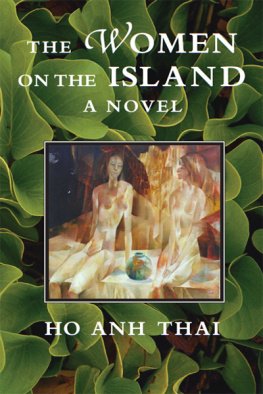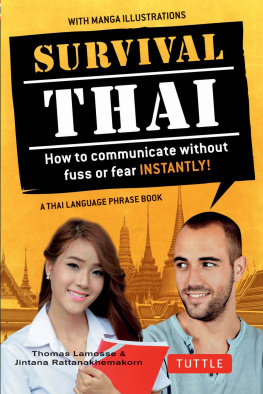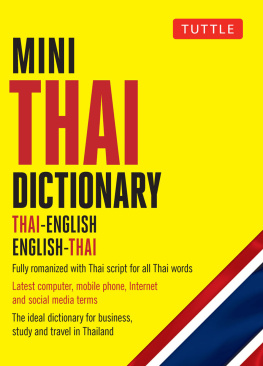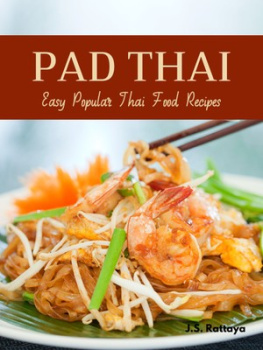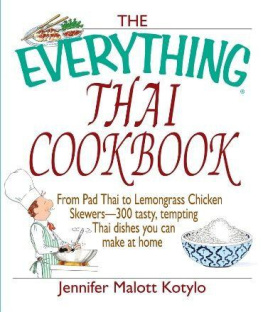Thai Ho Ahn - The Women on the Island
Here you can read online Thai Ho Ahn - The Women on the Island full text of the book (entire story) in english for free. Download pdf and epub, get meaning, cover and reviews about this ebook. publisher: University of Washington Press, genre: Detective and thriller. Description of the work, (preface) as well as reviews are available. Best literature library LitArk.com created for fans of good reading and offers a wide selection of genres:
Romance novel
Science fiction
Adventure
Detective
Science
History
Home and family
Prose
Art
Politics
Computer
Non-fiction
Religion
Business
Children
Humor
Choose a favorite category and find really read worthwhile books. Enjoy immersion in the world of imagination, feel the emotions of the characters or learn something new for yourself, make an fascinating discovery.
- Book:The Women on the Island
- Author:
- Publisher:University of Washington Press
- Genre:
- Rating:4 / 5
- Favourites:Add to favourites
- Your mark:
- 80
- 1
- 2
- 3
- 4
- 5
The Women on the Island: summary, description and annotation
We offer to read an annotation, description, summary or preface (depends on what the author of the book "The Women on the Island" wrote himself). If you haven't found the necessary information about the book — write in the comments, we will try to find it.
The Women on the Island — read online for free the complete book (whole text) full work
Below is the text of the book, divided by pages. System saving the place of the last page read, allows you to conveniently read the book "The Women on the Island" online for free, without having to search again every time where you left off. Put a bookmark, and you can go to the page where you finished reading at any time.
Font size:
Interval:
Bookmark:
ABOUT THE AUTHOR
AND THE TRANSLATORS
HO ANH THAI is one of the most prolific writers in Vietnam. He belongs to the generation of writers who came of age after the war with America. He began writing in 1977 at the age of seventeen and has since published fifteen novels and short story collections. Several of his stories have been translated into English and published as Behind the Red Mist: Short Fiction by Ho Anh Thai. He completed an M.A. and Ph.D. while living in India, and now works for the Ministry of Foreign Affairs in Hanoi.
PHAN THANH HAO lives in Hanoi. She is the Assistant Editor-in-Chief of Education and Times, published by the Ministry of Education and Communication. She has translated The Class by Eric Segal and Evening News by Arthur Hailey into Vietnamese, and she is the first translator of Bao Ninh's novel The Sor row of War, published in England and the United States. She was the chief consultant for Even the Women Must Fight: Memories of War from North Vietnam, by Karen Gottschang Turner. Her poetry appears in the anthology Visions of War/Dreams of Peace, and her short stories have been published in Australia.
CELESTE BACCHI lived in Hanoi for seven months while assisting on this book. With Phan Thanh Hao she has edited and translated numerous short stories and essays. Bacchi also worked as both an English and a kindergarten teacher during her time in Vietnam, South Asia, and Europe. She currently resides in San Francisco, where she is a law student focusing on international human rights law.
WAYNE KARLIN is professor of language and literature at the College of Southern Maryland, and directs the fiction program for the annual Literary Festival at St. Mary's College of Maryland. He served in the Marine Corps in Vietnam. In 1973 he contributed to and co-edited the first anthology of fiction by Vietnam veterans, Free Fire Zone. In 1995 he did the same for The Other Side of Heaven: Postwar Fiction by Vietnamese and American Writers, with Le Minh Khue and Truong Vu, an anthology that includes editors, writers, and stories from all sides of the war. With Ho Anh Thai, he also co-edited a collection of contemporary American short fiction that was published in Vietnam in 1998. He edited and worked on the translations of The Stars, the Earth, the River: Fiction by Le Minh Khue, Behind the Red Mist: Fiction by Ho Anh Thai, and Against the Flood by Ma Von Khang.
I n this particular state forestry enterprise on an island off the northeastern coast of Vietnam where nearly 90 percent of the workers are single women, there is not one person who is unaware of the legend of Tan Dac.
It goes like this. Tan Dac was a courageous general under the command of Tan Thuat. they were more than willing to sacrifice themselves for their cause. Tan Dac was pleased with his men, and they regarded him as a father and almost as a god.
Then one day near the village of Viet Hoa, Tan Dac came upon an old woman and her daughter. The old woman was on her knees gnawing and tearing at the grass and trying to push her daughter's face into the earth. Seeing her supplicant's posture, Tan Dac asked her to come closer and tell him what was wrong. He was surprised and then enraged to discover that the woman's daughter had been raped by three of his guerillas. In front of the two women and the whole band, the three disgraced men were beheaded. Their unlucky heads rolled on the ground, leaving three lines of blood, like red snakes. Tan Dac wanted to be sure his guerillas understood that they had only one right: to defeat the enemy. All personal desires, all other needs and hungers, had to be eliminated.
The remaining guerillas obeyed their leader without hesitation or reservation. They continued to suffer hunger and cold, and tried desperately to stifle the normal sexual desires of young men. And in reality, in the jungle and mountains of this island, it was rare to encounter anyone who could stir such desire.
It wasn't long after the beheadings when the guerillas came across an old man on his way to pick bamboo shoots. He was carrying a large, bulging jute-fabric bag, which he offered to Tan Dac's men. Ca Dinh, one of Tan Dac's lieutenants, opened the bag and looked inside. His face grew pale. He let the bag drop to the ground, then roared, Betrayed! Betrayed!
What do you mean? Tan Dac peered inside the bag, shocked at his friend's reaction.
My dear sir. Ca Dinh trembled with anger as he leaned over to whisper into Tan Dac's ear. My dear sir, don't you see what's in this bag?
Without looking again, Tan Dac said, All I saw were two jackfruits and a bamboo shoot.
Exactly. Two jackfruits and a bamboo shoot. They signify the male organ, sir.
It is said that the roar that burst from Tan Dac's throat then echoed among the trees and shook their branches. He ordered his men to chase down the old man. They caught him by Red Fish Lake. Without a word, Tan Dac drew his sword and struck through the old man's neck as easily as if he were slashing at the wind. The old man's head flew in one direction, and his poor body fell down near the edge of the lake, dyeing the foam at the water's fringe a deep red. The two jackfruits and the bamboo shoot were thrown down on the bank next to the body. Boiling with anger and humiliation, pushed by their own stifled, thwarted desires, the men rushed upon the fruit and the bamboo and chopped and tore into them, smashing them, slicing open the jackfruit and tearing out its seeds, which were strewn all over the lakeshore like coins. In their hearts, the guerillas could only hold their hatred and their need for revenge. As Tan Dac had told them, all other hopes, sentiments, and desires had to be killed.
The unfortunate old man's children and grandchildren soon heard the terrible news. They took up their spears and their guns and cut their way through the jungle to chase the guerillas. Ironically, destiny led the two groups to come face to face by Red Fish Lake. Again, there was bloody fighting between two unequal forces. Again bodies were slashed and mutilated. By the end of the battle, only two of the old man's grandchildren were left alive. One escaped, but the other was captured and led to Tan Dac. He smiled at the young man and said, Don't you understand that we're fulfilling our duty to the country by doing our best to kill the French?
Yes, I know.
Aren't you ashamed of losing your country to the French? Join us, and you can wash away your shame.
It wasn't the French who destroyed my family, the young man said stubbornly. He looked straight ahead, his gaze unblinking. Who will avenge them?
He shared the same fate as his grandfather. His body too was thrown into Red Fish Lake. Soon the brackish water of that lake was said to be cursed with blood. When the weather turned cold, schools of red fish swarmed up and covered the surface of the water like a red sail. In the eyes of the locals, this was the innocent blood of the unjustly killed, blood which couldn't be separated from the water, no matter how many seasons it froze or melted.
The surviving grandson sought vengeance for his family by becoming a scout for the French. Day after day, month after month, he led the blue-eyed, big-nosed foreigners through the jungle, in their hunt for Tan Dac and his guerillas. Eventually, the last surviving members of the band were found hiding in a cave. They were trapped, but steadfastly refused to surrender. After several months, believing that finally all of the guerillas must be dead, the French sealed the entrance of the cave and withdrew.
From that day, no one heard any more about Tan Dac and his guerillas.
But around Red Fish Lake, a large number of jackfruit trees appeareda forest of jackfruit trees. The fruits ripened and became food for the birds and fell and were scattered. In the season of jackfruit, whoever dared climb up the mountain through the jungle to gather fruit would become drunk from their thick, suffocating smell. And not far from the jackfruit trees had sprung up a thick forest of bamboo. The bamboo shoots grew everywhere, their life force a strength nothing could stop.
Font size:
Interval:
Bookmark:
Similar books «The Women on the Island»
Look at similar books to The Women on the Island. We have selected literature similar in name and meaning in the hope of providing readers with more options to find new, interesting, not yet read works.
Discussion, reviews of the book The Women on the Island and just readers' own opinions. Leave your comments, write what you think about the work, its meaning or the main characters. Specify what exactly you liked and what you didn't like, and why you think so.

